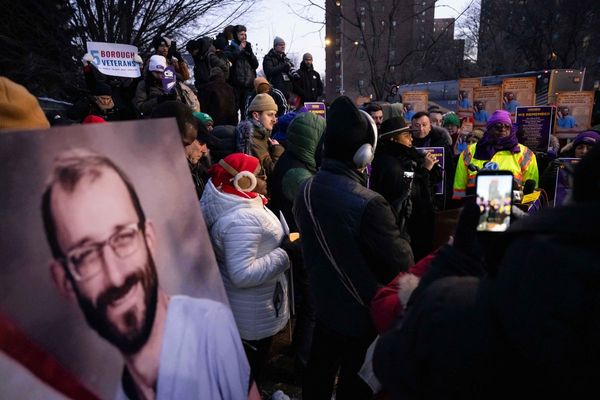
Parents have come out in support of a sweeping mobile phone ban in New South Wales public high schools, while cautioning that exceptions should be made for students with health problems and disabilities.
But an expert says the ban will not improve academic results, calling for greater education about how children should manage their screen time.
The newly elected NSW government on Monday announced that it would ban mobile phones in all public high schools during school hours.
The ban, to be introduced in term four, was a longstanding election promise made by the NSW Labor leader and now premier, Chris Minns.
Minns said the ban would apply during class, recess and lunchtime, and that students could carry their phones while travelling to and from school.
“These bans will be applied with common sense and in consultation with the experts, to ensure it works to improve our children’s learning outcomes,” Minns said.
A NSW Department of Education spokesperson told Guardian Australia schools could use a range of options to implement the ban.
Rachel Chappell, a mother of two and founder of a Sydney community group for parents, started a petition last year for mobiles to be banned during recess and lunch in NSW high schools. It amassed more than 25,000 signatures.
She chose to send her eldest daughter to an independent Sydney school when she started year seven this year, impressed by its strict phone policy.
“It’s about recess and lunch – making sure they’re not just in groups of friends scrolling,” she said. “I thought – imagine if they were doing TikToks in the bathroom at lunch …
“Kids are there to be learning. They’re on their laptops and iPads during class time – they’ve got a lot of screen time.”
Chappell said if she needed to get a message to her daughter she could send a text that would be seen at the end of the day.
But she called for limitations, including softer rules for children with health conditions such as diabetes, who may need regular contact with parents.
The Federation of Parents and Citizens Associations of NSW shares similar concerns, and is calling for exceptions for when phones are used for educational purposes and when they could help students with a disability or health problem.
Mobile phones are banned in NSW primary schools, while Victoria, Western Australia, South Australia and the Northern Territory have enforced similar bans for high school students.
Dany Elachi, a Sydney parent who founded the Heads Up Alliance during the pandemic to call for children’s exposure to smartphones and social media to be reduced, said parents are navigating “uncharted waters” in the digital age.
“There’s a whole raft of concerns parents are dealing with for the first time in history,” he said. “The idea kids might have a break from all this for six measly hours in a 24-hour day so they can learn with less distraction and build face-to-face relationships is such a no-brainer.”
But Dr Joanne Orlando, a digital expert at the University of Western Sydney, said research indicated phone bans do not improve academic outcomes, largely because students were rarely using phones during class.
“Are we expecting students’ marks to double?” she asked.
Orlando said digital literacy needed to improve among students and teachers, and that there should be more of a focus on educating young people on how to best manage their phone time.
“We need to think about how we teach the right habits and help young people be able to use them in really productive ways for their learning and work,” she said.
“If we ban phones we still have this issue. Enforcement is tough. Schools can spend a lot of money on pouches and I’d rather they spent it on children’s learning.”
A 2020 Swedish study found high school students achieved no improvement in their marks after a year-long mobile phone ban, while there is little suggestion such bans reduce bullying, which continues to be more prevalent in person than online.
Several NSW high schools, including Sceggs Darlinghurst, Davidson high school, Newington College and Canley Vale high school, have independently implemented their own bans, with mixed approaches.
Some require phones to be handed in and placed in lockable pouches at the start of the day, while others allow students to keep them in their lockers or bag.
Condell Park high school imposed a ban 16 years ago, requiring students to leave their phones on trolleys for the school day.
The school’s principal, Susie Mobayed, said it drastically reduced class interruptions.
“[There is] no room for cyberbullying, social media or taking photos and videos during the school day,” she said.







